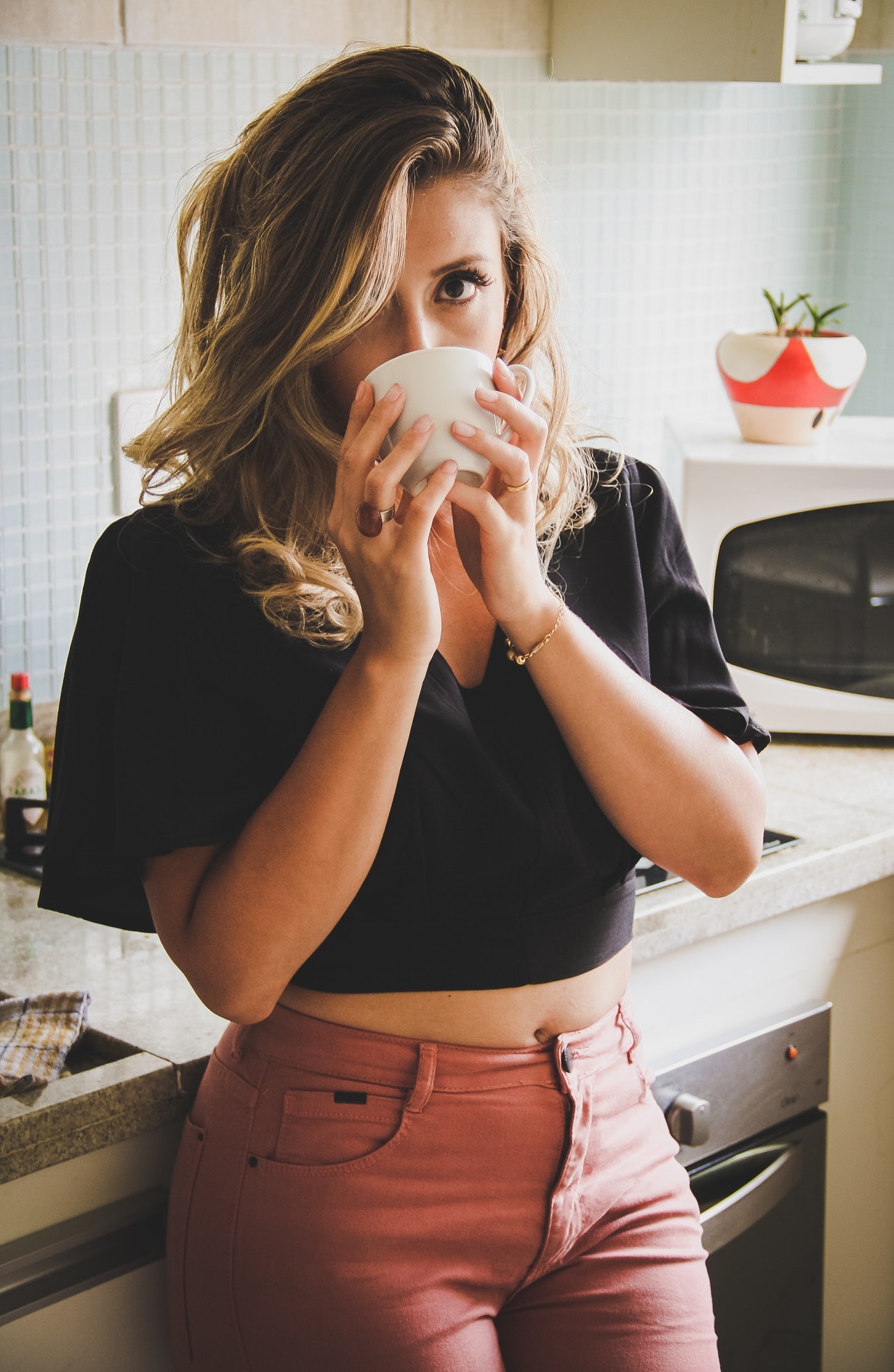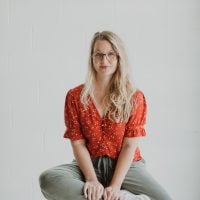Let’s go get a c___.
Oh, I have to have my c___.
Talk to me after I’ve had my c___.
It is being marketed as delicious and earthy; it’s almost as bad as the wine memes. I have to have my wine, and I have to have my c___ to deal with life. Life on life’s terms wouldn’t nearly be possible without my c___.
You can fill in the blank with either:
>> Coffee
>> Caffeine
Caffeine is a central nervous system (CNS) stimulant of the methylxanthine class. It is the world’s most widely consumed psychoactive drug. Unlike many other psychoactive substances, it is legal and unregulated in nearly all parts of the world.
In the old days, you had a morning cup of joe before heading out to the farm. A nice cup of Folgers to start your day. Now there is a Starbucks on every corner, adding so much sugar and creamy frothiness to the drinks it’s no longer coffee—it’s a full-on dessert concoction.
I was a coffee/caffeine addict from the first time I tried it at 16 years old. I liked the buzz it gave me. I don’t want to say caffeine is a gateway drug because I had already tried marijuana and alcohol at this time, but to have a legal kick in the pants that was socially acceptable at 16 was something I was all over.
I grew up in Seattle, and there were latte carts on every corner. You could get your frothy milk and syrup as you walked in or out of the grocery store; it was trendy, and it felt cool to be sipping on my sugary, syrup-laden “coffee.”
I then worked for Starbucks, and I was a fiend. A free drink before, during, and after my shift? A free pound of coffee each week? Sold. Throw in some meaty, cheesy, eggy, bready sandwiches, and I was in heaven.
What truly makes up these beverages we are being sold?
Coffee is actually an acidic beverage that changes your body’s pH (chemistry) and pumps up stress hormones. It is anti-calming, messes up our adrenal glands, and without their daily fix (or multiple-times-a-day fix), people feel like zombies and suffer from detox headaches and other withdrawal symptoms.
I am in a few anti-caffeine groups, and you wouldn’t believe the struggling and suffering from withdrawal symptoms that people confess they experience when they try to quit. And this doesn’t include people suffering from the effects of energy drinks and, even, soda.
When I finally made the resolve to quit, like I had done many times previously, I was so sick of needing coffee and caffeine to get through the day. I felt that I wasn’t productive enough without it; everyone else was drinking it; I ignored the massive anxiety and heart racing, pretending that it wasn’t a symptom of the coffee.
Coffee, for many, is more than a daily habit—it is a ritual. Sitting with their morning cup has become symbolic, a habit, something they must do. Let any coffee drinker wake up and not follow their morning ritual, and, tell me, what kind of growly bear would we see? Would that person be able to function normally? Would their cognitive function be intact?
We have become so accustomed to this drug in the morning that we can’t function normally without it until it finally leaves our system for the better. The withdrawal is grueling, but I promise there is a sweet reward when you get to the other side; not sweet as in a syrup-laden, five-dollar beverage, but a peace and calm, a feeling of ease while not being dependent on a substance first thing in the morning. You can take that extra time to have some herbal tea or meditate, write in a prayer journal, devote some time to your hopes, dreams, and desires.
I hear you: like, lady, why are you trying to take all of the fun out of my life? Who will I be without my morning joe?
It’s like an alcoholic claiming I’m committing to a life that is boring, dull, and glum without alcohol. See where I’m going with this?
For years, I wouldn’t go anywhere without a white-and-green cup in tow. It made me feel superior; it gave me comfort; it made me feel enough.
I treated my alcohol and drugs in the same way. I didn’t want to know what I would feel like without an alternative substance in my body.
But over time, I wanted to see what life was like without blinders on. What my actual soul was telling me, without a drug making me feel a certain way. Yes, caffeine and nicotine are drugs, too.
It’s been a process of starting and stopping, but I can finally say I am not addicted to any substances.
Here are a few steps I took to give up coffee and then caffeine altogether, gradually:
Set a date and have that be your first day without coffee—on the weekend or a day without work or many commitments. You will feel like sh*t and need to rest, hydrate, and have the Ibuprofen close. I chose to wean off with green tea and Yerba mate for 30 days because I didn’t have a week to stay home and detox.
When the 30 days of tea was over, I switched to Dandy Blend each morning. I truly recommend this! It is a herbal beverage with no caffeine that actually tastes similar to coffee. Teecino is another alternative.
I joined and posted in caffeine-free groups for support and to feel less alone in my coffee-free journey.
This was all back in 2017, and I have been coffee free since. I have dabbled with matcha and green tea here and there, but for the most part, have been completely caffeine-free and 100 percent coffee-free.
You might be asking, why do I feel the need to drink coffee? Why do I always need soda, caffeinated tea, or energy drinks? According to the Addiction Center website, which offers a treatment program for caffeine addiction, they say:
“People can develop a dependence on coffee and other caffeinated beverages quite quickly. This is due to the chemical changes that sustained consumption produces in the brain. If someone drinks caffeine on a daily basis, he or she will develop a tolerance, just as one would to other drugs or alcohol.
After a while, the user requires more and more caffeine to produce the same effects of alertness. Regular caffeine drinkers become acclimated to the wake-up aspect that the substance produces, and gradually require higher amounts to achieve the same ‘caffeine fix.’ Similar to other drugs, people who abruptly stop drinking caffeine after prolonged use will start to suffer from withdrawal symptoms and experience cravings. This causes many individuals to relapse when attempting to quit and resume drinking caffeine, regardless of the health problems associated with chronic caffeine use.”
The Alcohol and Drug Foundation had this to say about the seemingly delicious brown beverage: Long-term effects of regular, heavy use of caffeine (such as more than four cups of coffee a day) may eventually cause:
>> Nervousness
>> Difficulty sleeping
>> Restlessness
>> Irritability and headaches
>> Dizziness and ringing in the ears
>> Muscle tremors
>> Weakness and fatigue
>> Rapid heart rate and quickened breathing rate
>> Poor appetite, nausea, vomiting, and diarrhea
>> Increased thirst, frequent urination, or increased urine volume
>> Irregular heart rate or rhythm
>> Low blood pressure with faintness or falls
>> Seizures, confusion, or delirium
Giving up caffeine after using it for a long time is challenging because the body has to get used to functioning without it. Withdrawal symptoms usually start within 24 hours after the last dose. The symptoms can last for around 36 hours, or even longer for people who consume a lot.
These symptoms can include:
>> Headache
>> Marked fatigue or drowsiness
>> Dysphoric, depressed mood, or irritability
>> Difficulty concentrating
>> Flu-like symptoms (nausea, vomiting, muscle pain or stiffness)
I don’t want to be a killjoy, but if you have had the desire to be less addicted to substances or less dependent on that morning cup, I encourage you to try a life that is stimulant-free. It’s not the easier, softer way, but it eases up the desire to constantly need a fix. You can be content in social situations with herbal tea or water, and your body and brain will thank you for years to come.
Feel free to comment and open the dialogue about the struggles of caffeine withdrawal. This is a real problem that most people aren’t talking about, as 90 percent of the population uses some sort of caffeine to get through the day.







Read 10 comments and reply